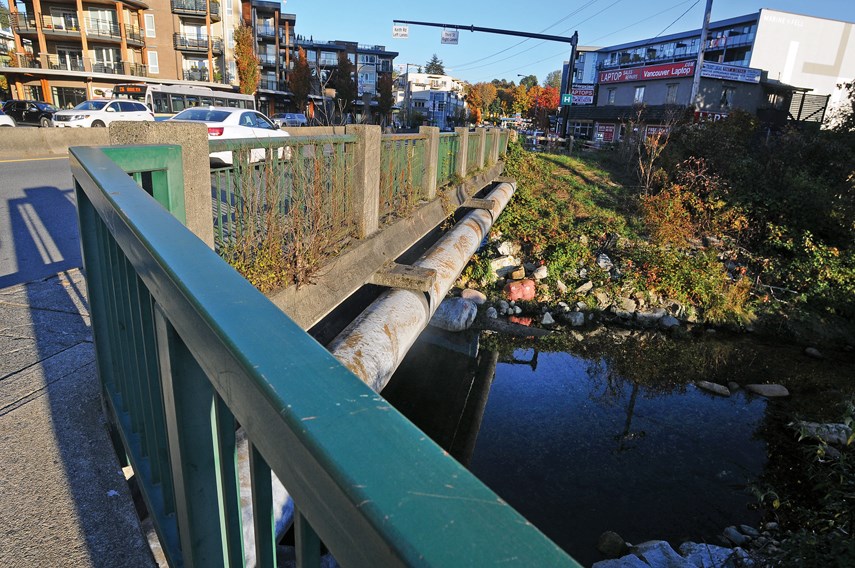The replacement Mosquito Creek Bridge is running millions over budget and construction hasn’t even begun yet.
Council voted in 2018 to budget $9 million to replace the decaying 1952 bridge on Marine Drive. But when the open bidding process closed, the lowest price on offer was more than $10.5 million.
And thanks in part to a spat with Telus, the project has been delayed, likely by a year according to a city of North Vancouver staff report.
“Despite being consulted early and continuously, TELUS recently indicated they now require three months to temporarily remove their lines from the bridge. Bridge work cannot begin with
the TELUS lines in place and will push bridge construction beyond the 2019 window for
in-stream work in Mosquito Creek,” the report stated.
According to staff, it’s not clear whether the city or the telecom should be paying to have the lines moved.
Council voted unanimously Monday night to reallocate $3.6 million funds from other projects already completed, or ones that can be delayed in order to make sure the bridge can be completed.
“We did have some surplus money that had been allocated and also in a few cases, taking projects that may be delayed and moving that money up now. They’ll come back on the budget when they can be proceeded with,” said Coun. Don Bell. “It’s a good investment. The Mosquito Creek Bridge is badly in need of replacement. The engineering studies determine that it has weaknesses. It’s not at a catastrophic stage but it’s time to be replaced.”
The project will now be phased in over two years, rather than completed during the summer of 2019.
Mayor Linda Buchanan said expressed concern construction delays would impact the pending North Shore B-Line, due to start service next year, and said she has already written to North Vancouver MP Jonathan Wilkinson asking for more federal grants to help cover the cost overrun.
The feds have already granted $3,870,000 for the project and TransLink has chipped in $1,650,000.
Coun. Tony Valente warned the Mosquito Creek Bridge overrun should serve as an example of the kind of cost creep that can happen with other major infrastructure projects on the city’s to-do list.
“Costs are increasing and the market is going this way unfortunately at this moment,” he said.



